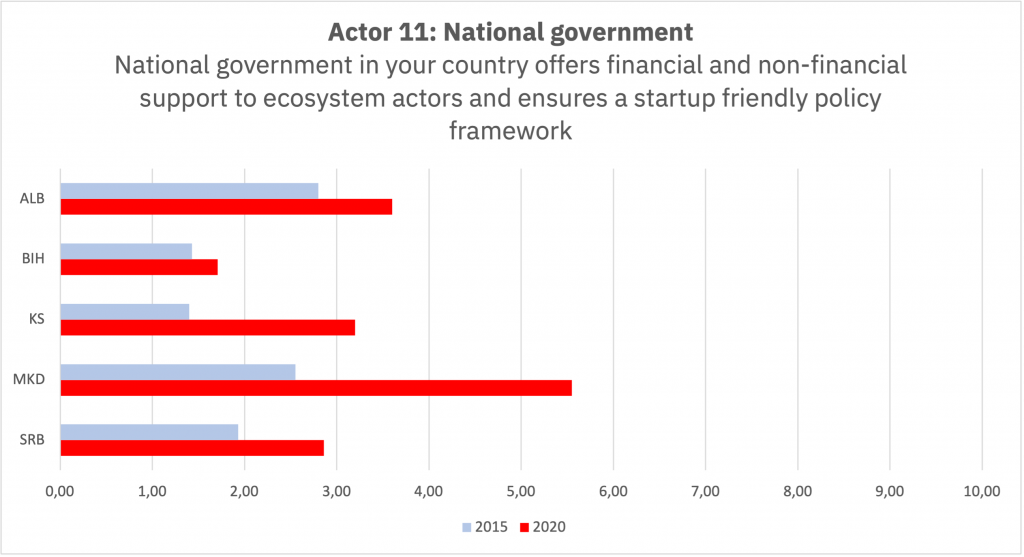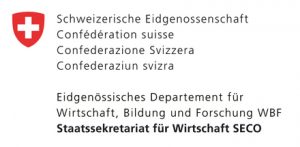In reference to the roles a national government can play in support of startup communities, Brad Feld writes, “…national government can contribute to entrepreneurship, primarily through policies that set the table”. He refers to the quality of the overall business environment in the country. Feld continues that beyond good policies, “…national government may engage directly in activities to stimulate entrepreneurship and innovation…”. Such activities may include “…allocation of capital to stimulate the formation of early-stage, high-tech startups”.
We asked our interviewees how accurate they found the following statement “National government in your country offers financial and non-financial support to ecosystem actors, and ensures a startup-friendly policy framework.”
Overall, national governments scored better than local governments, but not by much. On a scale from 0 to 10, the score was as low as 2.0 in 2015, and 3.4 five years later. As with local government, the interviewees in all five countries made it clear that startup communities still have high unanswered expectations of national governments to boost entrepreneurship and become a consistent and constructive actor in the ecosystem.

Startup communities’ relation to and view of national government appear to vary significantly from country to country. North Macedonia and Kosovo recorded greatly improved perceptions of national governments of 129% and 120%, respectively, but again this change occurred from a very low level. In Serbia, perceptions have been enhanced by 53%, while in Albania (+29%) and Bosnia & Herzegovina (+21%), and the interviewees remained relatively unimpressed by national governments.
From a policy and overall business environment perspective, the situation in each of the five countries is heavily influenced by the EU accession process and the extent to which the national government has adopted EU legislation and regulation. The World Bank’s Doing Business index, which maps the business environment in 190 countries worldwide, ranked the five Balkan countries in 2020 and 2015 respective – North Macedonia +13 (17/30 rank), Serbia +47 (44/91 rank), Kosovo +18 (57/75), Albania -14 (82/68) and Bosnia & Herzegovina +17 (90/107).
However, the main difference between the five countries lies elsewhere—in policy implementation. To what degree the national government allocates a budget and implements programs supporting entrepreneurship and startups is the dividing line among the countries. Here we find two groups:
- Group 1 includes North Macedonia and Serbia, both hosting state agencies (Fund of Innovation and Technology Development and Innovation Fund Serbia) that offer a mix of technical assistance and financial instruments designed for startups, in a tailored and transparent manner. The injection of public funds, effectively and consistently addressing the core needs of idea- and early-stage startups, has a significant positive impact on the local entrepreneurial ecosystem and individual startups, resulting in company growth and investments.
- Group 2 includes Albania, Bosnia & Herzegovina and Kosovo, where national governments are yet to become core contributors to the entrepreneurial ecosystem, as in Serbia in North Macedonia. Too often, these countries rely on the international donor community to design and implement startup support activities and grant schemes.
It is becoming increasingly clear that without a government’s well-funded and consistent support of startups, effectively bridging knowledge and funding gaps, there can be only limited expectations for startup creation and growth in an ecosystem.




